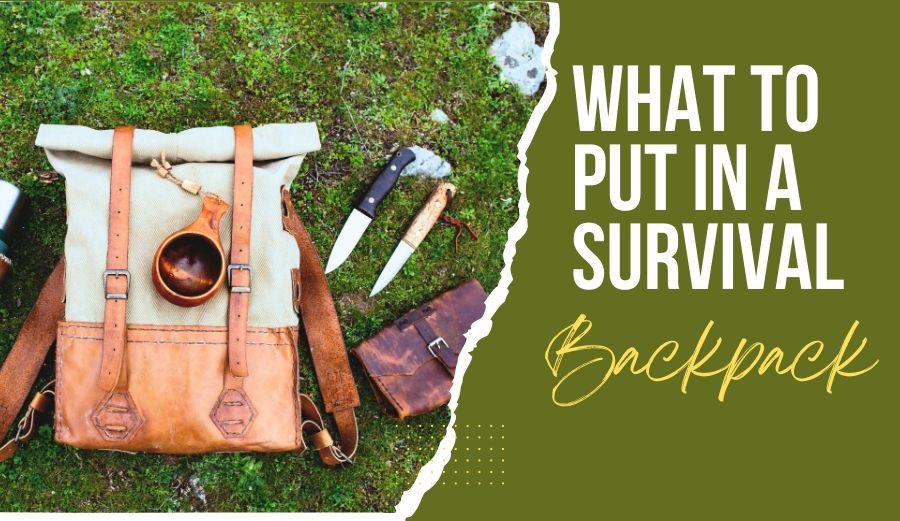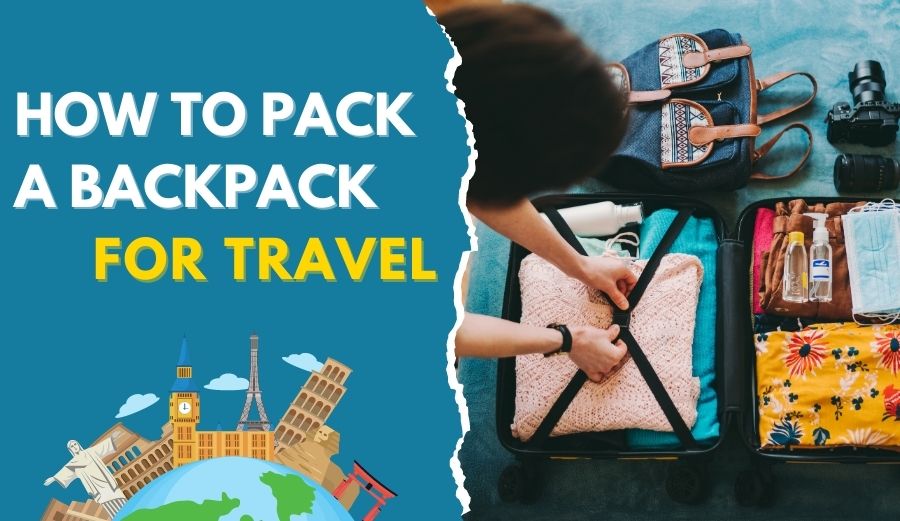The Ultimate Checklist: What to Pack in a Hunting Backpack
Mastering the art of hunting demands more than marksmanship. It’s about being ready for any scenario. Discover why knowing what to pack in a hunting backpack isn’t just practical – it’s the key to confidently conquering the wild.
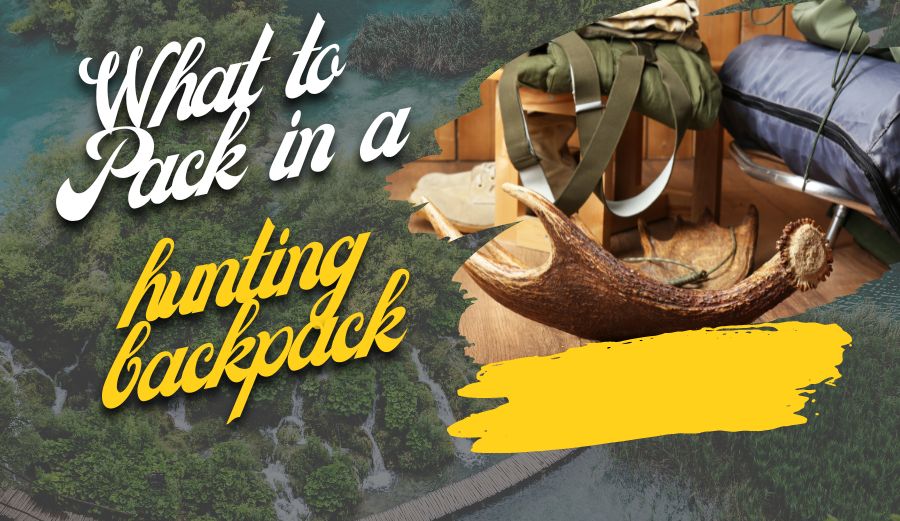
Pioneering an unforgettable hunting escapade hinges on a crucial aspect: knowing precisely what to pack in a hunting backpack. Picture this: The wilderness stretches before you with opportunities and challenges. Your backpack isn’t merely a carrier; it’s a repository of your triumphs and readiness. As you delve into the heart of nature, the art of adequate backpack packing becomes your compass, ensuring that every essential is within reach.
In this guide, we delve deep into successful hunting preparation. From gear that amplifies your advantage to supplies that epitomize foresight, we uncover the secrets of packing your hunting backpack with finesse. The journey begins here, where meticulous planning meets the thrill of the wild, all centered around the pivotal question – what to pack in a hunting backpack?
Table of Contents
ToggleEssential Gear and Equipment
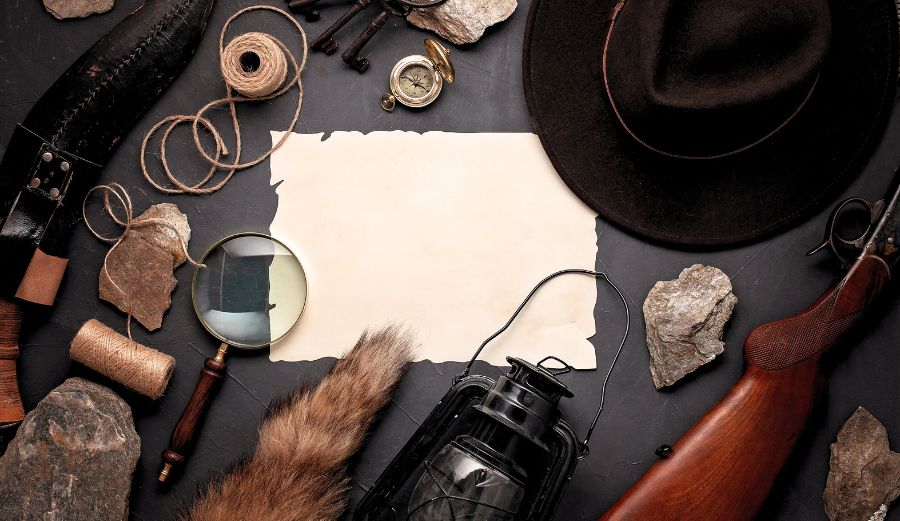
As a pro hunter, your success hinges on more than just instinct; it’s about having the right tools and equipment to conquer the wild. In this section, we delve into the crucial gear and equipment that form the bedrock of your hunting expedition.
A. Weapons and Ammunition
Types of Firearms or Bows for Different Types of Hunting: Your choice of weapon can significantly impact your hunting experience. For large game, consider rifles with appropriate caliber and optics. For a more challenging experience, archery bows demand skill and precision. Tailor your weapon to the match you’re pursuing and the environment you’re navigating.
Ammunition or Arrows – Quantity and Type: Pack ample ammunition or arrows, considering potential follow-up shots and emergencies. Use high-quality, reliable ammunition tailored to your firearm, and ensure hands are well-matched to your bow.
B. Optics and Navigation Tools
Binoculars or Spotting Scopes: Avid hunters know that spotting games from a distance can make all the difference. Invest in quality binoculars or spotting scopes to scan the terrain, spot movement, and assess game size before moving.
GPS Devices or Maps: Navigation is a core skill for any pro hunter. Equip yourself with a GPS device preloaded with topographical maps for precise tracking. Additionally, carry physical maps as a backup to avoid getting lost in unfamiliar territories.
Compass or Navigation Apps: Traditional compasses remain steadfast allies in navigation. Supplement them with navigation apps on your smartphone, which can offer real-time positioning, route planning, and weather updates.
C. Clothing and Apparel
Layering System for Varying Weather Conditions: Mother Nature can be unpredictable, especially in the wild. Embrace the concept of layering, starting with moisture-wicking base layers, insulating mid-layers, and weather-resistant outer layers. This adaptable approach ensures comfort and protection across changing conditions.
Camouflage Clothing for Stealth: Camouflage isn’t just a fashion choice; it’s a tactical advantage. Blend seamlessly into your surroundings with camo patterns matching your hunting area’s terrain and vegetation.
Quality Hunting Boots: Your feet are your primary mode of transportation through rugged terrain. Invest in sturdy, waterproof hunting boots with proper ankle support to prevent injuries and dry your feet.
Gloves, Hats, and Face Masks: These seemingly minor accessories are essential for minimizing your scent, reducing glare, and staying concealed from keen animal senses.
D. Safety Gear
Blaze Orange Clothing for Visibility: While camouflage helps you blend in, blaze orange clothing ensures you’re visible to other hunters, preventing accidents.
First Aid Kit: Accidents can happen in remote areas. Carry a well-stocked first aid kit with bandages, antiseptics, medications, and essential medical tools.
Emergency Communication Devices (Satellite Phones, Radios): Reliable communication is paramount in emergencies. Satellite phones or two-way radios enable you to call for help even in areas without cellular coverage.
Personal Locator Beacon (PLB) or Satellite Messenger: These devices transmit distress signals to emergency services, providing your exact location for swift rescue in life-threatening situations.
Being a pro hunter entails meticulous preparation and equipping yourself with the right gear. Each item in your backpack serves a purpose, enhancing your efficiency, safety, and success. As you master the art of selecting and packing essential gear, you transform from a mere hunter into a skilled woodsman capable of navigating any challenge the wilderness may present. Stay tuned as we explore more facets of pro-hunting preparation in the subsequent sections.
Food and Hydration

In pro-hunting, sustenance is more than a luxury – it’s a strategic asset. As you venture into the wild, your body needs fuel to maintain focus and energy. Here’s how to keep your nutrition and hydration on point:
A. Lightweight and High-Energy Snacks
When the hunt demands your attention, you need convenient snacks that pack a punch. Opt for energy-rich options like nuts, jerky, and protein bars. These lightweight snacks provide quick bursts of energy without weighing you down.
B. Dehydrated Meals or Trail Mix
For more extended hunts or overnight stays, dehydrated meals are a godsend. These lightweight, space-saving packets can be rehydrated with hot water for a hearty meal. The trail mix, comprising nuts, dried fruits, and perhaps a touch of chocolate, offers a blend of nutrients for sustained energy.
C. Portable Water Filter or Purification Tablets
In the wild, clean water is non-negotiable. Portable water filters or purification tablets ensure you can drink from natural sources without worry. These devices neutralize contaminants, making water safe for consumption.
D. Hydration Bladder or Water Bottles
Staying hydrated is vital for performance and focus. A hydration bladder fits neatly into your backpack and allows you to sip water without stopping. Alternatively, water bottles are dependable options for carrying fluids.
E. Cooking Equipment (Optional)
- Compact Stove: A compact stove can transform dehydrated meals into warm, satisfying sustenance if your hunting trip extends beyond a day. These stoves are designed to be lightweight and efficient, utilizing minimal fuel.
- Utensils and Cookware: A spork (combination of spoon and fork) is a versatile meal utensil. Depending on the complexity of your meals, consider carrying a lightweight pot, pan, and mug for cooking and drinking.
Remember, your body is your primary tool during a hunt. Ensuring you have the right fuel and hydration sustains you physically and keeps your mind sharp and your reflexes keen. Pro hunters recognize that adequate nutrition and hydration strategies are integral to a triumphant hunting experience. As we delve deeper into the art of being a pro hunter, let’s uncover more insights that set you apart in the wilderness.
Shelter and Sleeping Gear
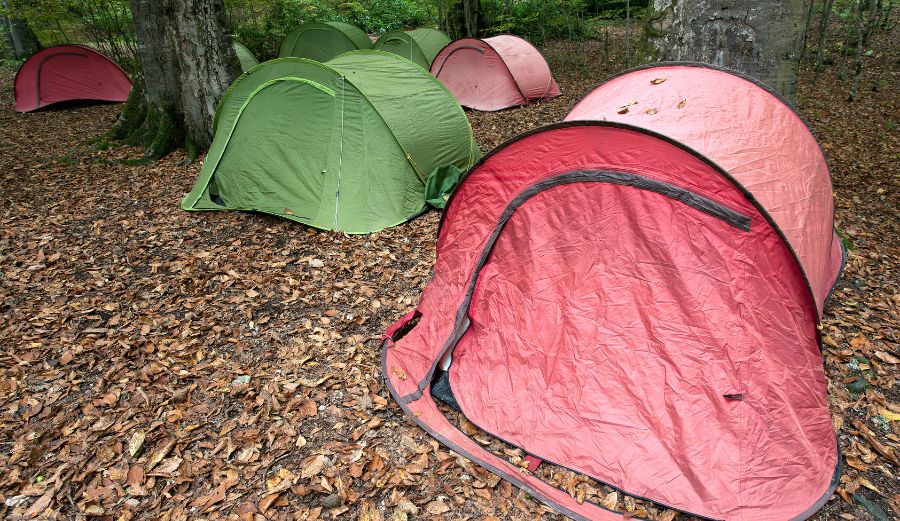
Surviving and thriving in the wild requires adequate rest and protection from the elements. Your shelter and sleeping gear are the havens where you recharge for the next day’s challenges.
A. Lightweight and Compact Tent or Shelter
Choose a tent or shelter that balances weight with durability. The suitable shelter shields you from rain, wind, and insects. Opt for lightweight, easy-to-set-up options that won’t weigh you down during your hunt.
B. Sleeping Bag Suitable for the Climate
Tailor your sleeping bag to the climate you’ll encounter. Insulation ratings determine how warm a sleeping bag is. A colder environment demands a bag with higher insulation, while milder weather requires less.
C. Sleeping Pad or Insulated Mat
An insulated sleeping pad or mat serves two purposes: comfort and insulation from the cold ground. A good place ensures a restful night’s sleep, which is crucial for staying sharp during the hunt.
D. Bivouac Sack (Emergency Shelter)
A bivouac or bivy sack is a compact, lightweight shelter designed for emergencies. It offers protection from the elements when carrying a full tent isn’t feasible.
Survival and Emergency Items
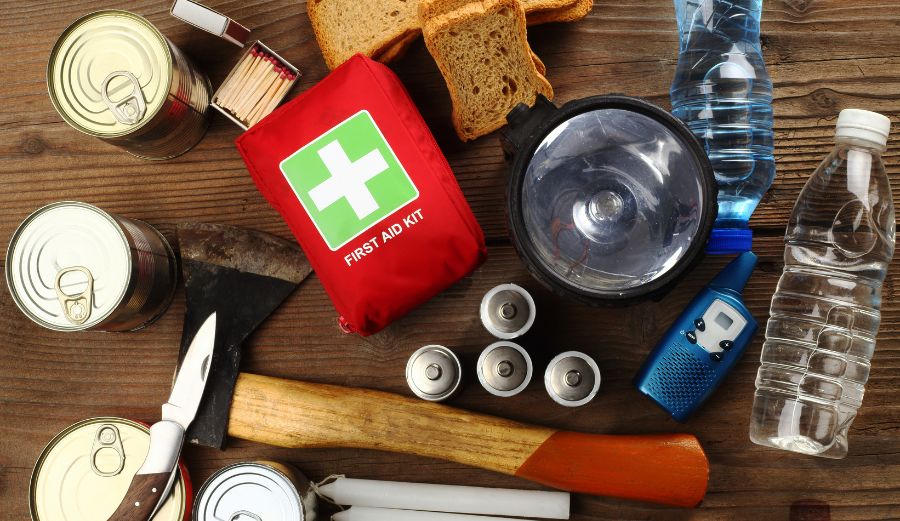
As a pro hunter, you’re well-versed in the art of preparation. Equipping yourself with survival and emergency items extends that readiness, ensuring you can handle unexpected situations.
A. Fire-Starting Tools
Waterproof matches, lighters, and fire starters are your lifelines for warmth, cooking, and signaling for help. Store them in a waterproof container to ensure they remain functional.
B. Multi-Tool or Knife
A multi-tool or a versatile hunting knife is a cornerstone of survival. It aids in preparing food, building shelters, and handling various tasks you encounter in the wild.
C. Emergency Blanket
Compact and lightweight, emergency blankets reflect and retain body heat, providing crucial insulation when temperatures drop unexpectedly.
D. Whistle and Signal Mirror
A whistle’s piercing sound can carry over long distances, aiding communication. A signal mirror can catch sunlight and attract attention, increasing your chances of being spotted.
E. Cordage or Paracord
Cordage has myriad uses – from building shelters to setting traps. Paracord, known for its strength, versatility, and lightweight nature, is a favorite among pro hunters.
F. Bear Spray or Deterrent (If Applicable)
For hunts in bear country, bear spray is a powerful tool to deter potential threats. Get acquainted with how to use it and ensure it’s readily available when needed.
Field Dressing and Processing
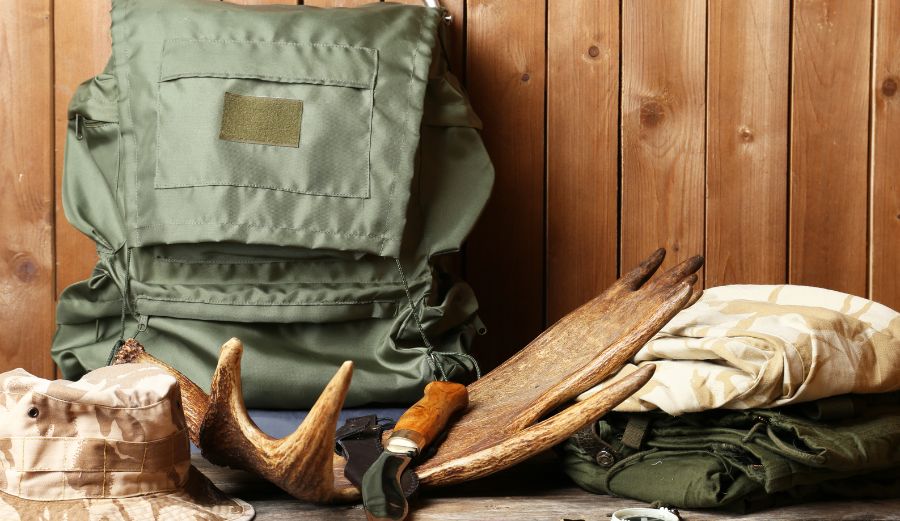
Your skill extends beyond the hunt, including proper field dressing and game processing. This section of your backpack ensures your hard-earned catch is handled efficiently and hygienically.
A. Field Dressing Kit
Gloves, sharp knives, and bone saws are the trio for effective field dressing. These tools streamline the process, ensuring you’re well-prepared for transporting the game.
B. Game Bags for Meat Transport
Game bags prevent contamination and preserve meat quality during transportation. They’re an essential investment for any hunter.
C. Zip-Top Bags for Organ Storage
Organ storage requires attention to detail. Zip-top bags keep organs separated, preventing contamination and ensuring you make the most of your game.
D. Scent-Blocking Materials
Hunting success hinges on remaining undetected by your quarry. Scent-blocking materials help mask your scent, increasing your chances of a successful stalk.
Miscellaneous Items
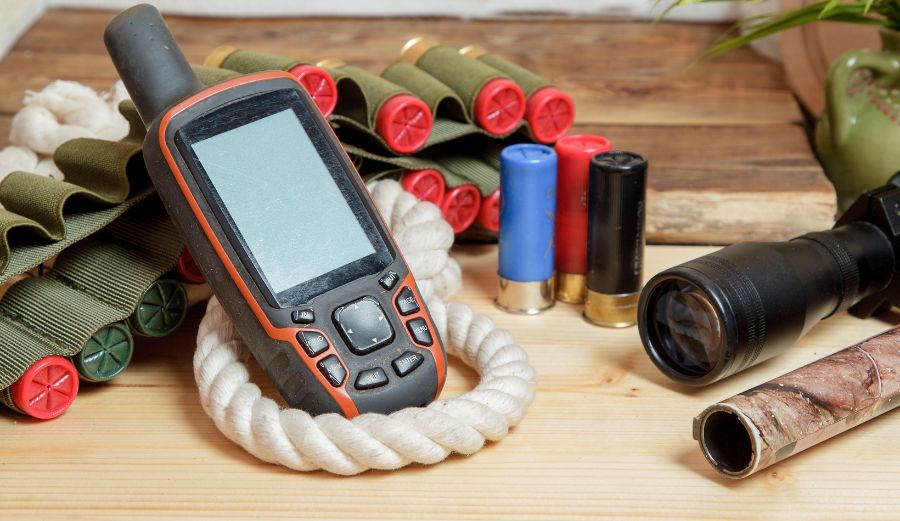
Pro hunters know that it’s often the small things that make a big difference. These miscellaneous items complete your preparedness toolkit.
A. Headlamp or Flashlight with Extra Batteries
When darkness falls, a reliable source of light becomes indispensable. A headlamp leaves your hands free, and extra batteries ensure prolonged usage.
B. Insect Repellent
Bugs can be relentless distractions. Insect repellent ensures your focus remains on the hunt rather than swatting away pests.
C. Game Calls or Attractants
Game calls mimic animal sounds, luring your prey into range. Attractants can enhance your chances by enticing curious animals closer.
D. Camera or Smartphone for Documenting the Hunt
Capture the exhilaration of the hunt by documenting your experiences. Whether for memories or sharing your stories, a camera or smartphone is a valuable addition.
As a pro hunter, your backpack isn’t just a storage space; it reflects your expertise and preparedness. Each item serves a purpose: survival, comfort, or increasing your chances of success. Equipped with these insights, you’re poised to tackle the wild with confidence and skill. Stay tuned as we uncover the final pieces of the pro-hunting puzzle, ensuring you’re fully equipped for any challenge nature presents.
Packing and Organization Tips
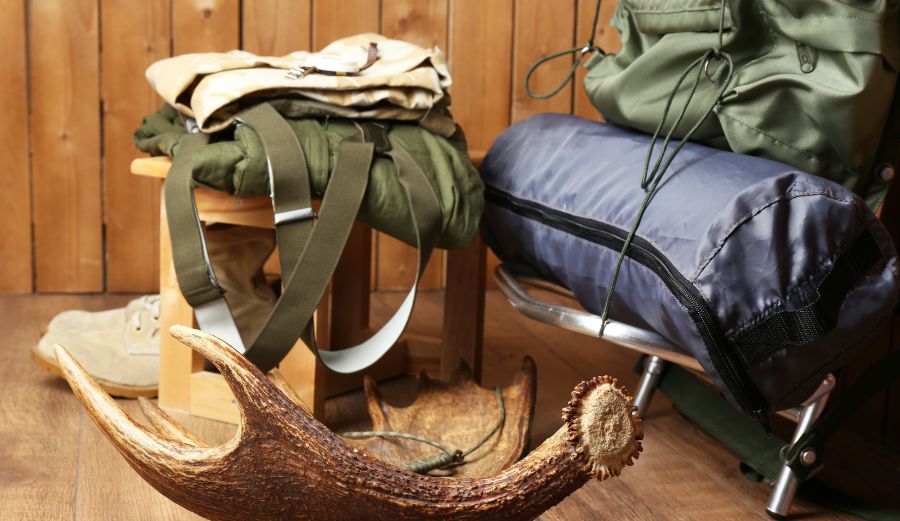
In the world of pro-hunting, precision extends beyond the hunt itself. How you pack and organize your gear can significantly impact your overall experience and success. Let’s explore critical strategies for packing smartly and efficiently.
A. How to Properly Distribute Weight in the Backpack
A balanced backpack is a game-changer. Distribute weight evenly to avoid strain on your body and maintain stability during hikes. Place heavier items close to your back’s center of gravity, keeping the load manageable and minimizing fatigue.
B. Using Packing Cubes or Dry Bags for Organization
Packing haphazardly can lead to frustration and inefficiency. Packing cubes or dry bags compartmentalize your gear, creating a systematic approach to organization. Group items by category, making retrieval quick and hassle-free, even in the heart of the wilderness.
C. Preparing for Different Types of Hunts (Day Hunt vs. Multi-Day Hunt)
The nature of your hunt shapes your packing strategy. For day hunts, streamline your gear to essentials – weapons, optics, clothing layers, and sustenance. For multi-day excursions, meticulous planning is vital. Pack additional clothing, extra nutrition, and shelter provisions, tailoring your load to the duration and demands of the hunt.
Your proficiency as a pro hunter extends to how well you manage your gear. Master the art of efficient packing, and your hunting adventures will seamlessly transition from the planning phase to the execution, ensuring every piece of equipment serves its purpose without hindrance. In the final stretch of our exploration, let’s unveil the culmination of your pro-hunting readiness.
Wrap Up
As we conclude our journey through the essentials of packing a hunting backpack like a pro, let’s revisit the core principles that underscore your readiness for the wild.
A. Recap the Importance of a Well-Packed Hunting Backpack
Your hunting backpack isn’t just an accessory; it’s a repository of skill, foresight, and preparedness. Every item carefully selected and packed within its confines contributes to your success as a pro hunter. From the gear that amplifies your advantage to the provisions that sustain you, a well-packed backpack is your ally in pursuing nature’s challenges.
B. Emphasize the Need for Personal Adaptation
While this guide equips you with a comprehensive understanding of what to pack, remember that adaptation is a hallmark of a true pro hunter. Individual preferences, hunting locations, and environmental conditions all play a role in shaping your packing choices. Tailor your load to your unique needs, balancing readiness and comfort.
You embody the essence of pro-hunting as you step into the wild with your well-organized backpack, armed with the right gear, knowledge, and mindset. Each hunt is an opportunity to test your preparedness, navigate the complexities of nature, and emerge victorious. May your journeys be marked by triumphs, and may your backpack always be a testament to the mastery you’ve achieved in the art of the hunt.
Thank you for embarking on this journey with us, and may your hunting endeavors be as rich and rewarding as the landscapes you explore.
FAQs
Different types of hunting may require specialized gear and equipment. It’s essential to choose a hunting backpack that aligns with the specific requirements of your hunting activity.
Regularly inspect your hunting backpack for any damages or wear. Follow the manufacturer’s cleaning and maintenance instructions to ensure its longevity and optimal performance.
Yes, hunting backpacks are often versatile and suitable for various outdoor activities like hiking, camping, and fishing. However, ensure it meets the needs of the specific activity.
Yes, packing extra clothing, including rain gear and insulation, is advisable to prepare for unexpected weather changes during your hunting trip.
To reduce weight, opt for lightweight and compact versions of gear and equipment. Also, consider the necessity of each item and prioritize only the essentials for your trip.

